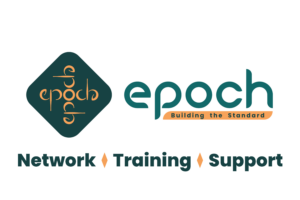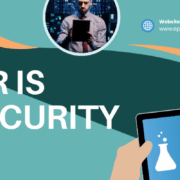Cybersecurity Awareness Month: Protect Your Business and Data
October is Cybersecurity Awareness Month — a good moment to ask yourself one simple question: If something went wrong with your systems today, how fast could your business recover?
Cybersecurity isn’t just about firewalls or fancy software. It’s about protecting the heart of your operations — your data, your tools, and your people. That includes everything from customer records and employee information to the systems you rely on every day to keep work moving.
No matter your size or industry, strong security and a solid recovery plan can mean the difference between a minor disruption and a serious setback.
Why Cybersecurity Matters More Than Ever
A lot of businesses assume cybersecurity is something only the IT team needs to worry about. But the truth is, if one person clicks a bad link or uses a weak password, it can trigger a problem that affects the entire company.
Good security isn’t about living in fear, it’s about being ready. At Epoch, we build solutions that make recovery fast, minimize downtime, and keep your business moving even when things don’t go as planned.
The Risks of Being Unprepared
A cyberattack or system failure isn’t just an inconvenience. It can lock you out of your data, stall your work, and damage your reputation. Recovery can be long and expensive if you don’t have a plan in place.
With a strong cybersecurity and disaster recovery strategy, you can avoid:
- Costly downtime
- Data loss or exposure
- Compliance issues (HIPAA, GDPR, and more)
- Operational slowdowns
- Customer trust problems that are hard to rebuild
Epoch’s Cybersecurity and Disaster Recovery Solutions
We don’t believe in scare tactics. We build real protection that fits how your business actually works. Our approach covers everything from prevention and monitoring to fast recovery if something does happen.
Our security and disaster recovery services include:
- Risk assessments to uncover vulnerabilities before they become problems
- Disaster recovery planning with clear recovery goals, timelines, and regular testing
- Cloud and off-site backups that keep your data safe and easy to restore
- Incident response plans so everyone knows what to do in a crisis
- Access control and encryption to keep sensitive information secure
- 24/7 security monitoring for suspicious activity and real-time alerts
- Vulnerability scanning and patch management to close security gaps
- Training and awareness programs to turn your employees into your first line of defense
- Compliance support for HIPAA, GDPR, and other data protection regulations
Simple Steps to Improve Your Security Today
Not sure where to begin? A few simple changes can make a big difference:
- Turn on multi-factor authentication for key accounts
- Keep systems and software fully updated
- Test your data backups to make sure they work
- Review who has access to sensitive information
- Monitor for unusual logins or system activity
These are small steps, but they can close common gaps that cybercriminals love to exploit.
Staying Compliant Without the Headache
Data protection laws can feel overwhelming, but they don’t have to be. Our team helps businesses stay compliant with HIPAA, GDPR, and other key regulations by making sure your data handling, security, and recovery processes meet the required standards. You’ll be ready for audits — and avoid fines — with less stress.
Your Team Is Your First Line of Defense
Technology can’t do it all on its own. A strong security culture starts with your people. That’s why we offer hands-on employee training, phishing simulations, and clear incident response planning. The more your team understands the risks, the faster and smarter they can respond.
Making Cybersecurity Simple for Your Business
Cybersecurity doesn’t have to be complicated or intimidating. At Epoch, we make it straightforward: protect your data, prepare for the unexpected, and build systems that bounce back fast.
This Cybersecurity Awareness Month, take a few minutes to look at how your business would handle a worst-case scenario. A little preparation now can save you from a lot of chaos later.
Ready to strengthen your cybersecurity strategy? Contact us at 877-483-7624 or on our contact page.













